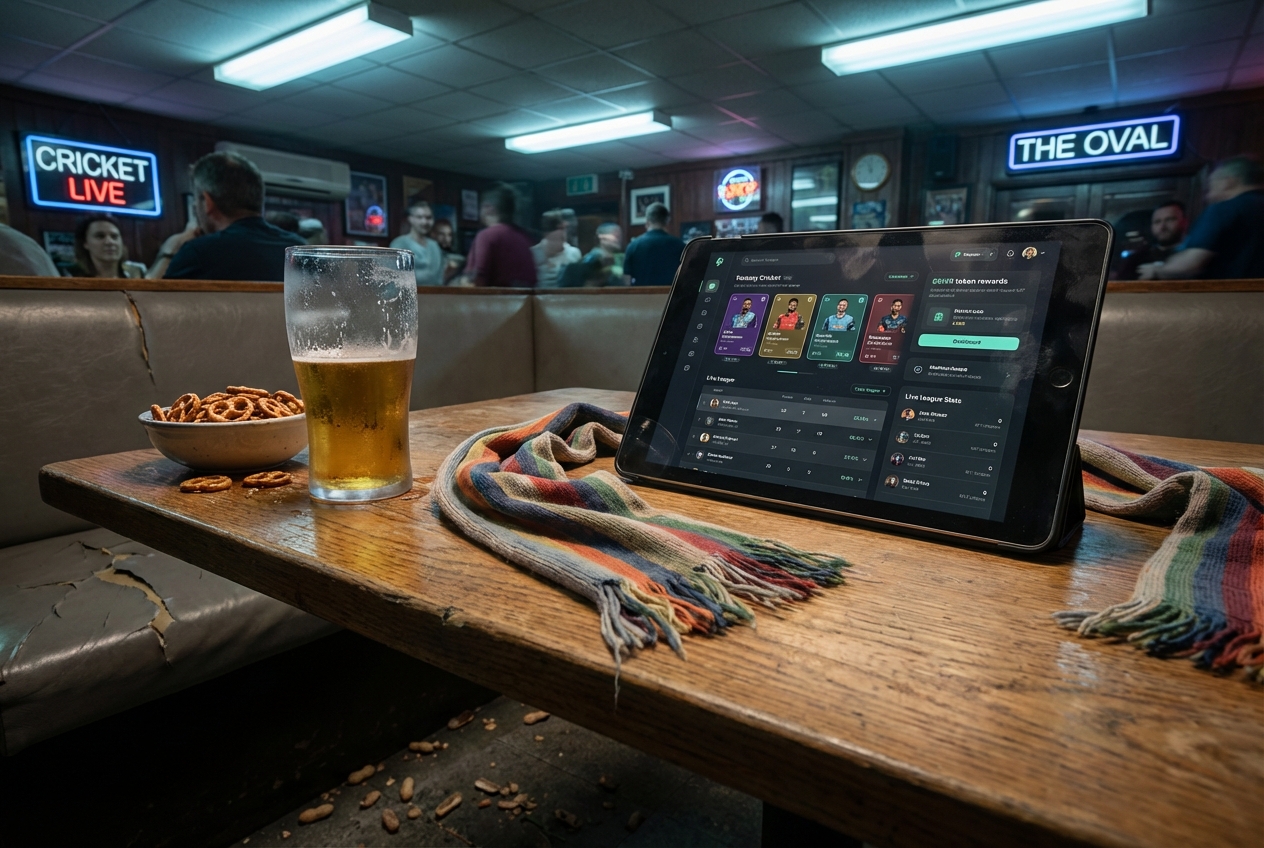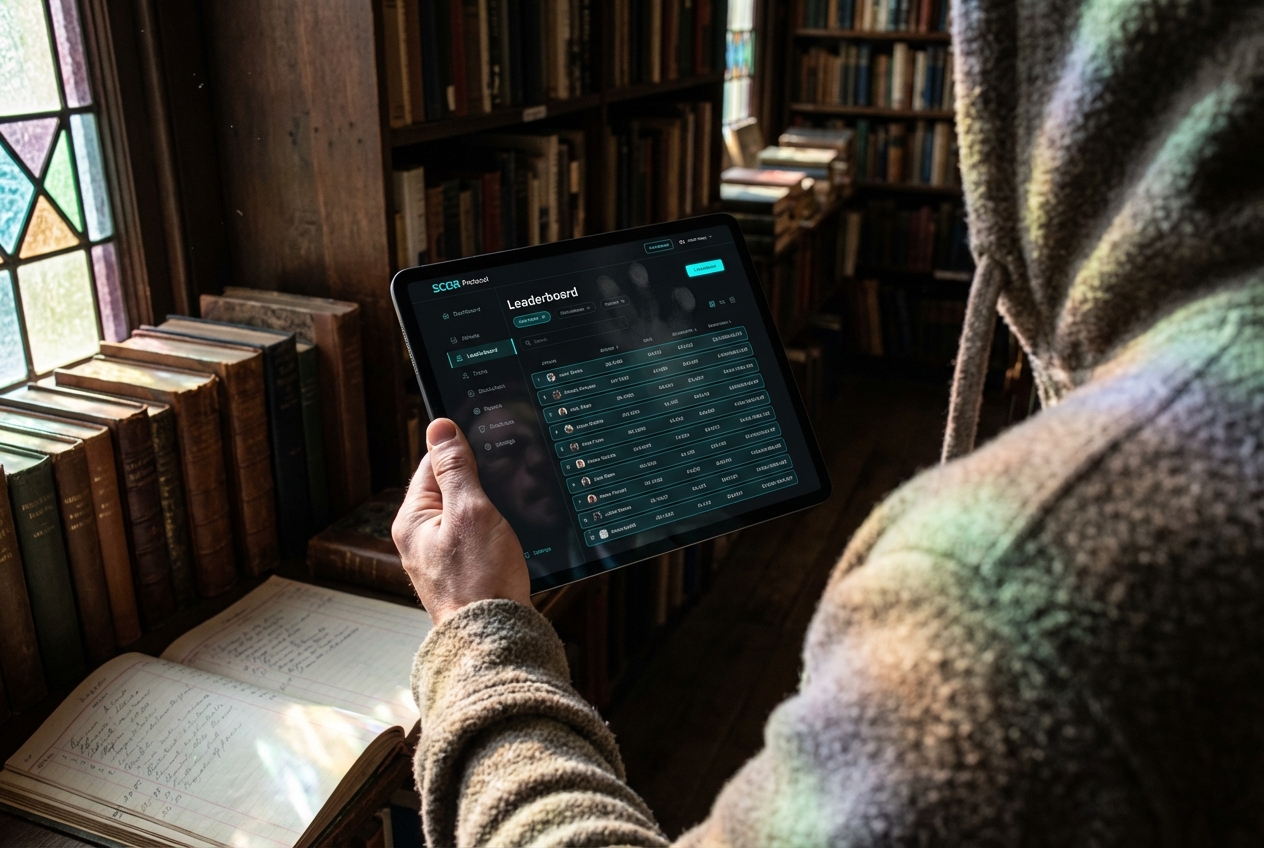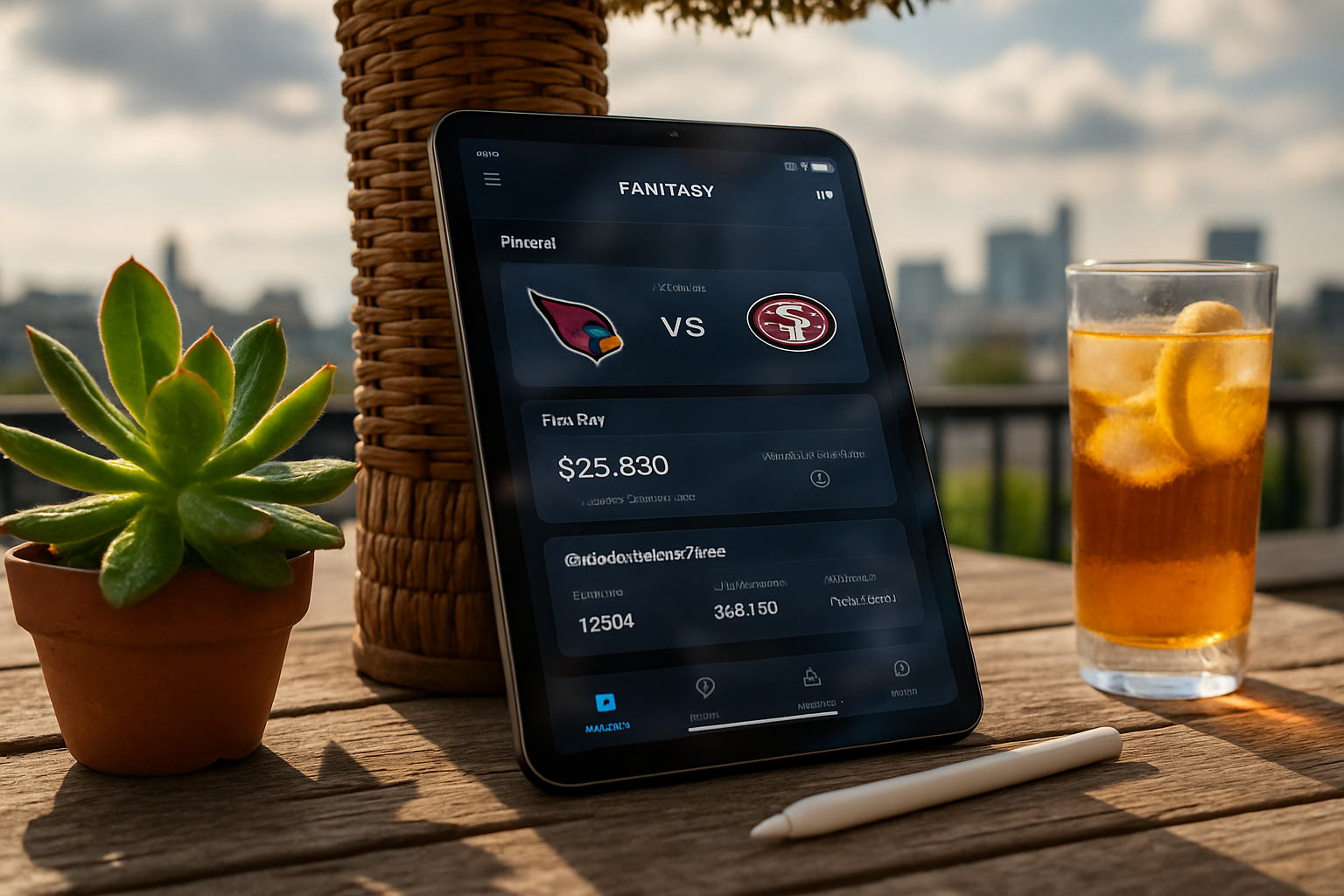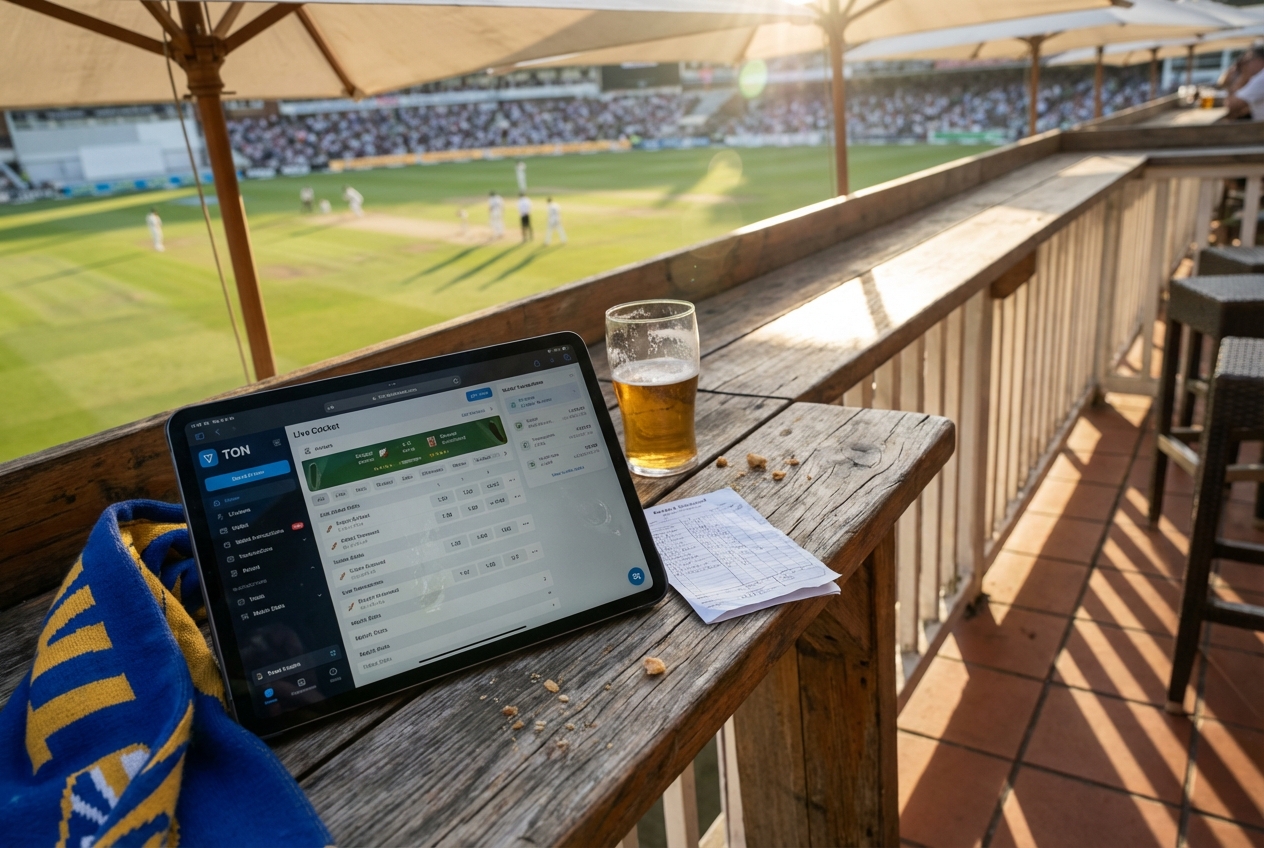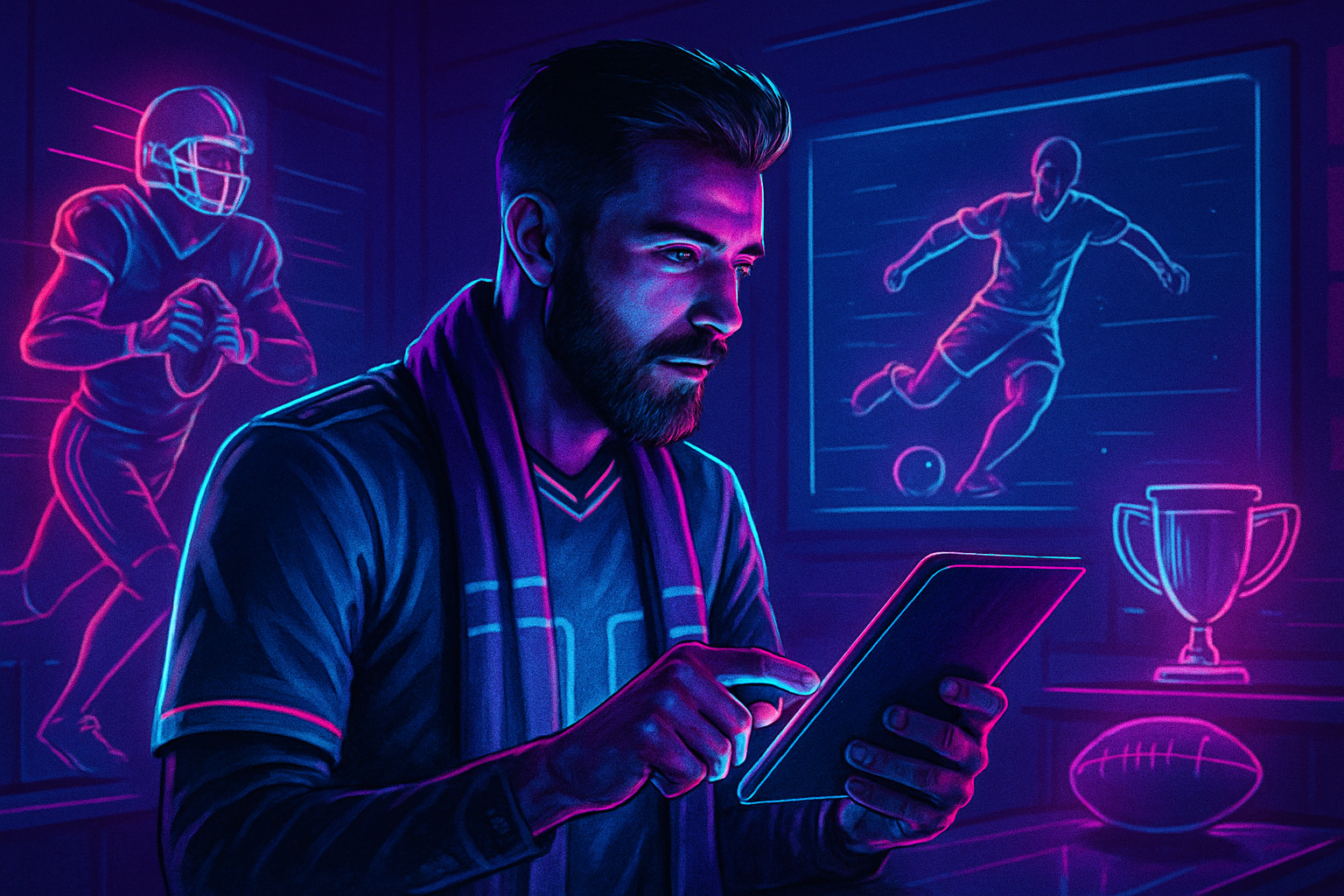
Fantasy sports have always been about strategy, competition, and the thrill of building your own dream team. But now, a new wave of innovation is transforming the industry: on-chain fantasy sports. By integrating blockchain technology, platforms are giving fans more than just bragging rights, they’re introducing real rewards and true digital ownership.
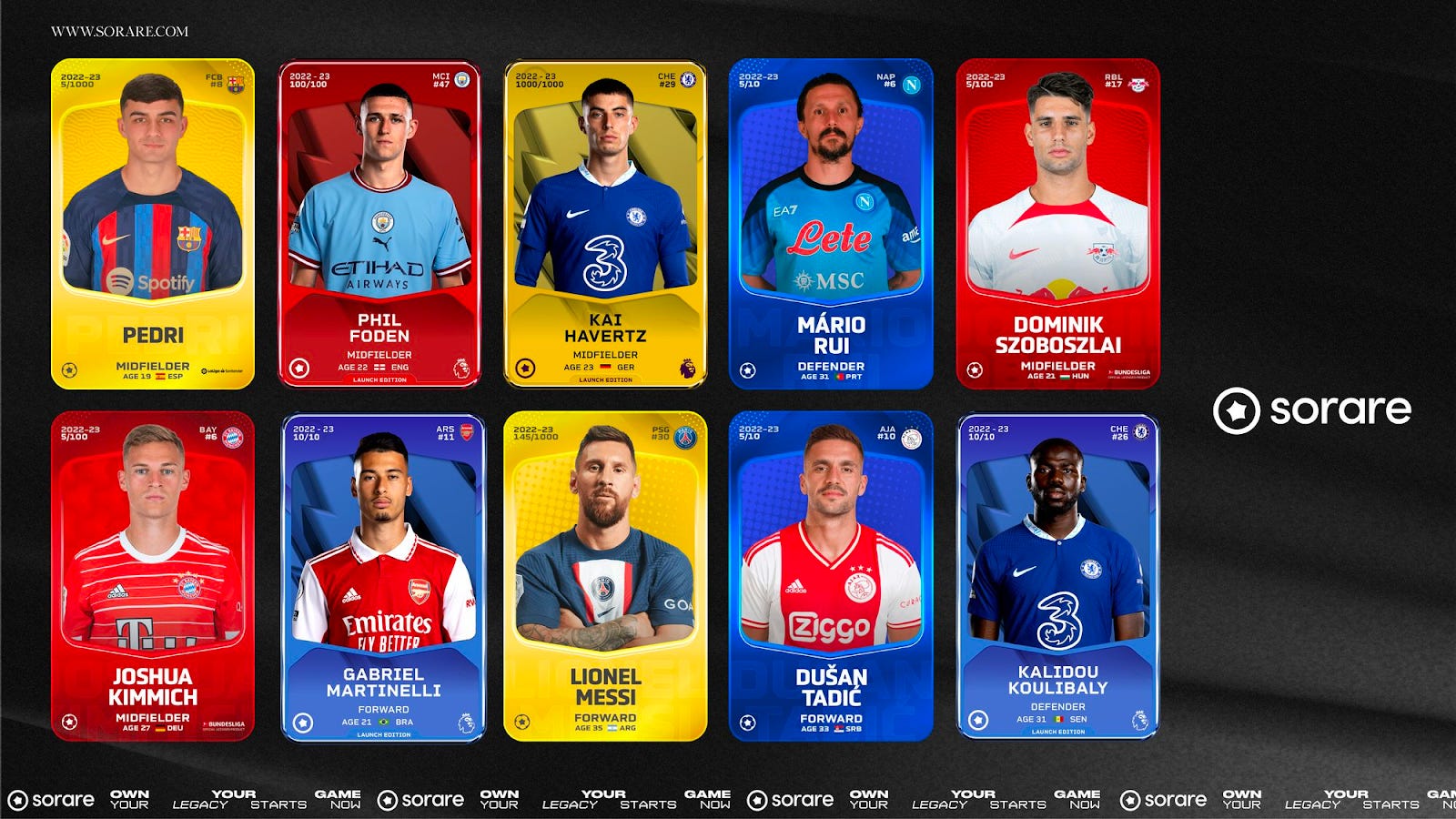
Why Blockchain? The Problems With Traditional Fantasy Sports
For years, traditional fantasy sports platforms have struggled with issues like lack of transparency, limited control over assets, and centralized decision-making. Fans might spend hours researching lineups and competing in leagues, but their digital teams are ultimately locked inside proprietary systems with little portability or tangible value.
Blockchain fantasy football and other on-chain models address these shortcomings head-on:
- Transparency: Every trade, score update, and prize payout is recorded on an immutable ledger visible to all participants.
- Ownership: In-game assets like player cards or tokens are minted as NFTs, unique digital collectibles that you can truly own, sell, or transfer.
- User Empowerment: Decentralized governance lets fans help shape the rules and future features of their favorite games through DAOs (Decentralized Autonomous Organizations).
This shift is not just theoretical. Platforms like Sorare, LeagueDAO, and AthleteFi are already putting these concepts into practice, sometimes even letting users own entire stadiums or training facilities as digital assets.
The New Era: Platforms Leading On-Chain Fantasy Sports
The current landscape is dynamic. Let’s look at some key players who are redefining what it means to play, and win, in fantasy sports:
Top Blockchain Fantasy Sports Platforms
-
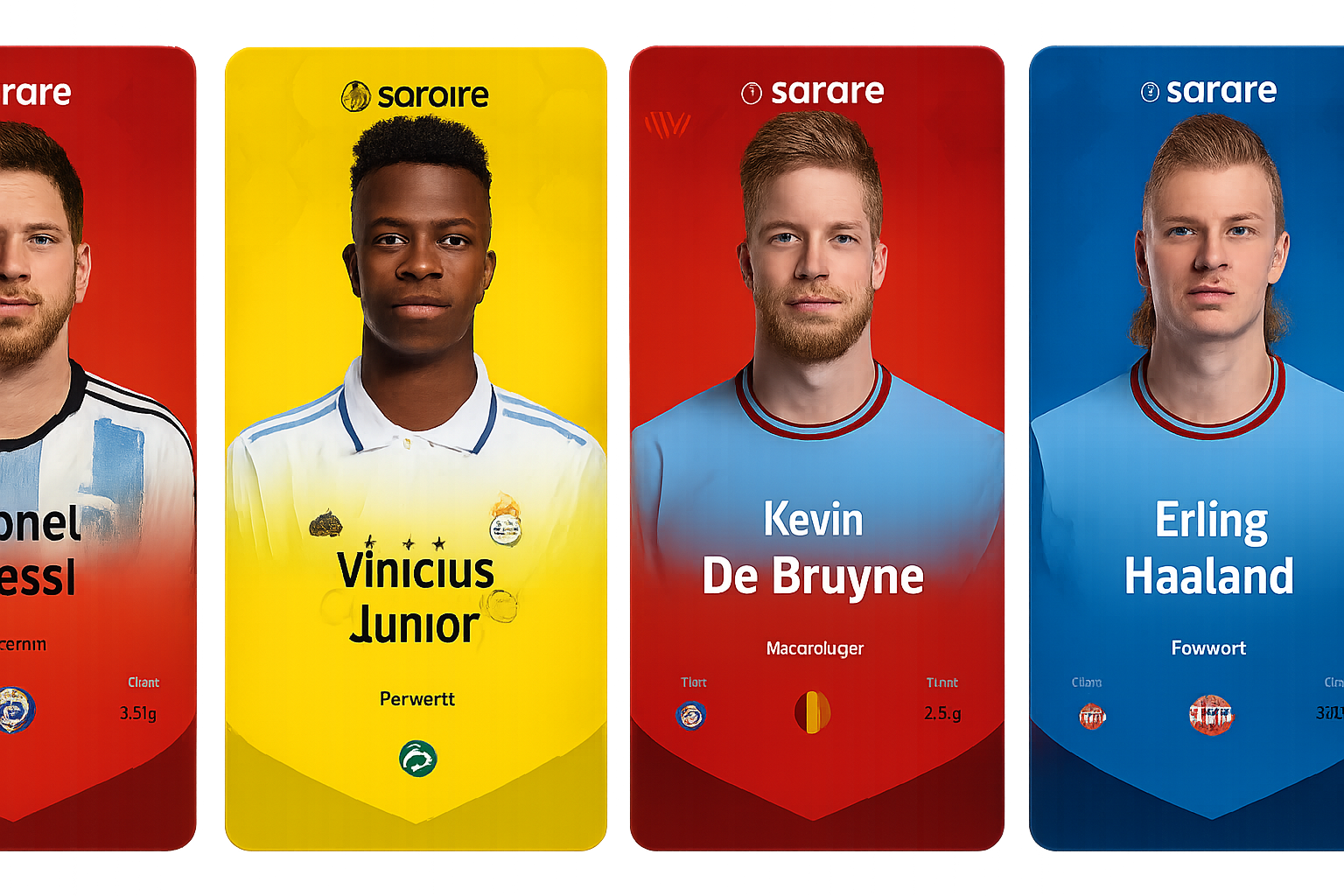
Sorare: A leading blockchain fantasy sports platform, Sorare lets users collect, trade, and play with officially licensed digital player cards, minted as NFTs. With partnerships across the Premier League, LaLiga, NBA, and MLB, Sorare offers true digital ownership and is migrating its NFT ecosystem to the Solana blockchain for enhanced speed and lower fees.
-
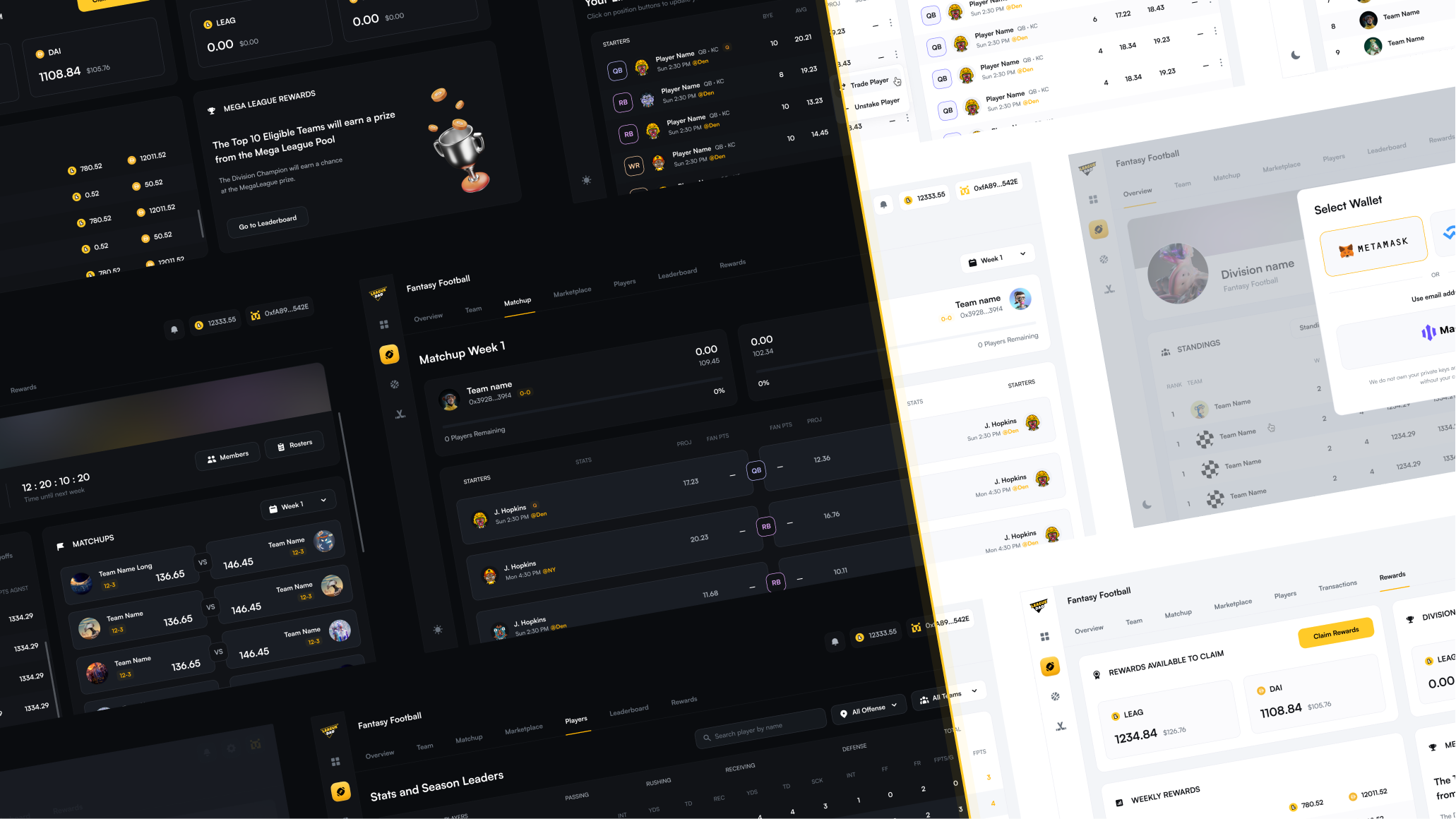
LeagueDAO: LeagueDAO is a decentralized, tokenized fantasy sports platform leveraging DeFi, play-to-earn mechanics, and NFTs. Players are represented by NFTs, and users can earn real rewards while participating in decentralized governance through DAOs.
-
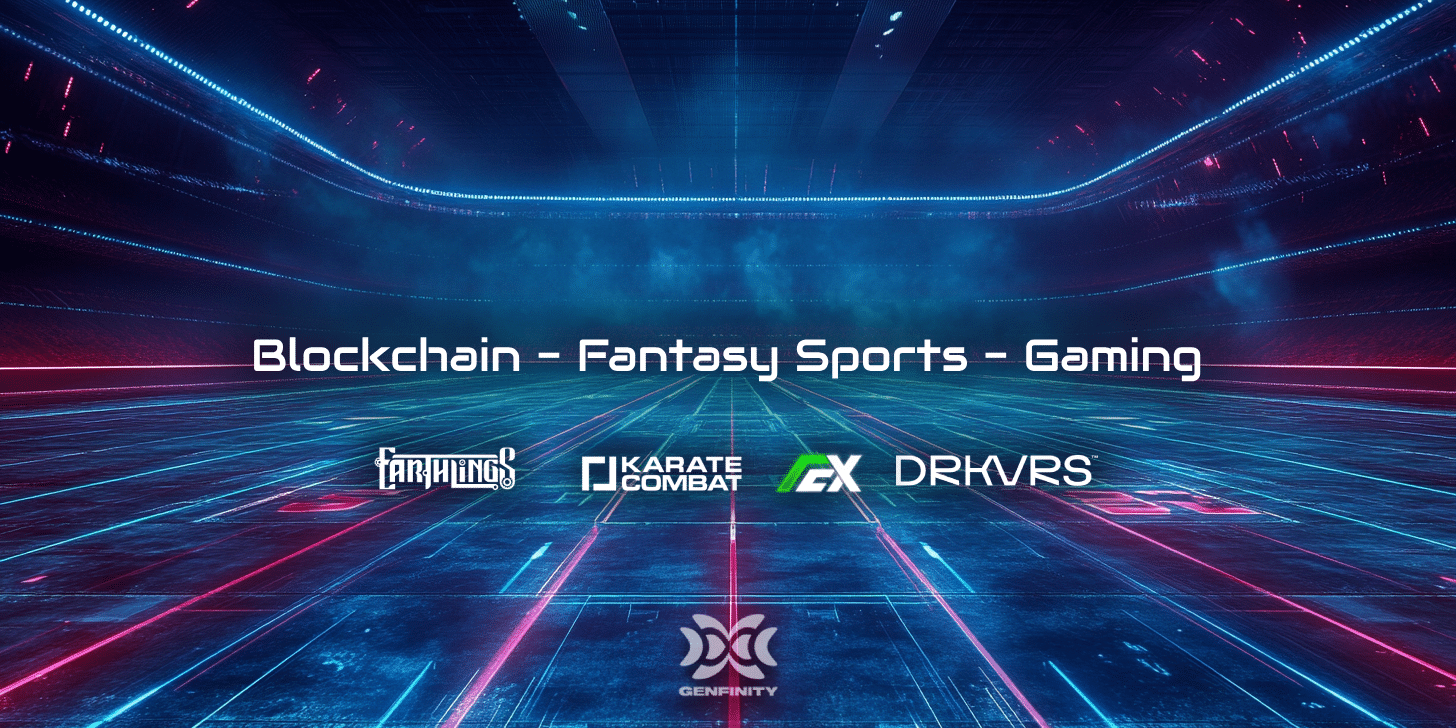
Leagues.fun: Built on Avalanche, Leagues.fun merges traditional fantasy sports with Web3 elements, offering real rewards and opportunities for digital investment. Its blockchain integration ensures transparent gameplay and secure asset ownership.
-

SimWin Sports: SimWin Sports, powered by Immutable, enables users to own digital representations of players, stadiums, and even entire teams as NFTs. The platform emphasizes complete digital ownership and real-time gameplay in a metaverse-inspired sports environment.
-

AthleteFi: AthleteFi allows users to collect NFTs of real-world athletes, build fantasy teams, and earn rewards based on actual sports performance. Its dynamic NFT marketplace and weekly challenges add an engaging, competitive layer to the experience.
-
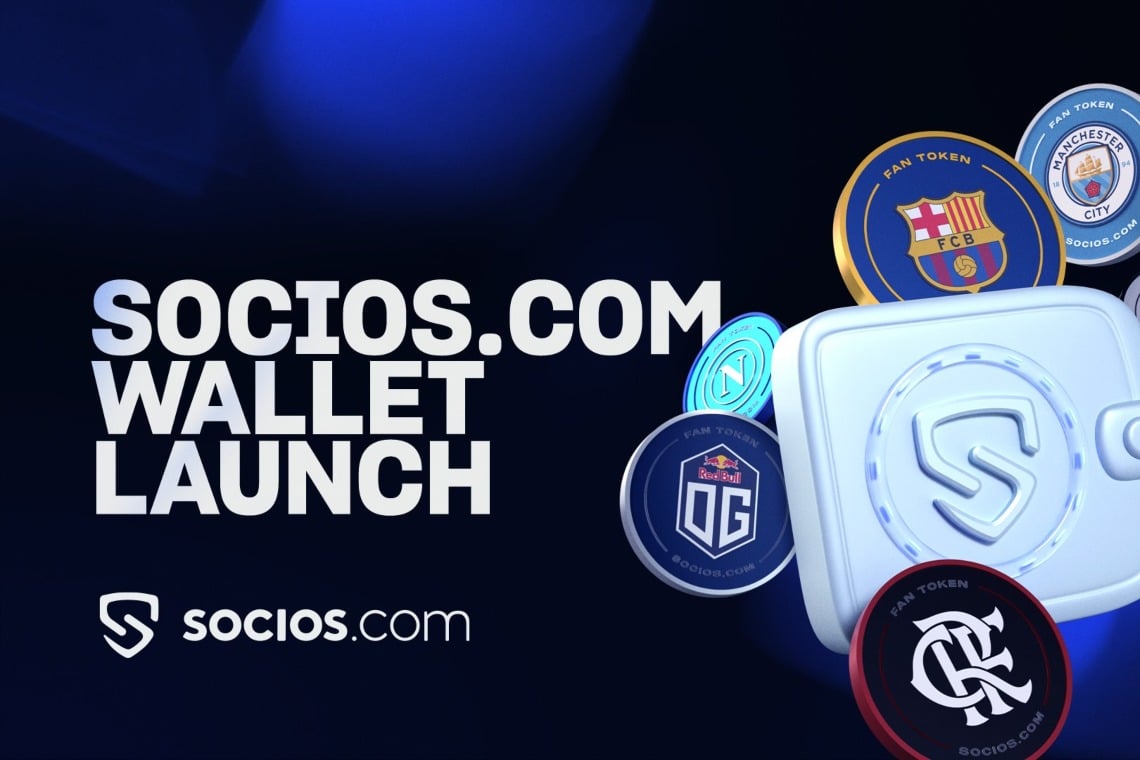
Socios.com: Socios.com is a blockchain-based platform where fans purchase tokens to participate in team-related decisions and polls. While not a traditional fantasy sports app, it bridges the gap between fan engagement and blockchain rewards, letting users influence their favorite clubs.
Sorare: This platform has become a household name in blockchain fantasy football. Users collect officially licensed NFT player cards from leagues including the Premier League, LaLiga, NBA, and MLB. These cards can be traded or used in weekly competitions for crypto rewards. Sorare’s recent migration of its entire NFT collection to Solana, a network currently trading at $227.8, with 24-hour volatility at 2.5%: is expected to boost scalability and user experience (source).
LeagueDAO: Focused on decentralization from day one, LeagueDAO combines DeFi mechanics with play-to-earn incentives. Here, athletes are represented as NFTs that can earn rewards based on real-world performance. Governance is handled by token holders who vote on everything from scoring tweaks to new league formats.
Socios. com: While not a traditional fantasy platform, Socios leverages fan tokens to let supporters participate directly in club decisions, bridging the gap between fandom and ownership in unprecedented ways.
The Mechanics: How On-Chain Fantasy Sports Work
The heart of blockchain-powered fantasy lies in its unique workflow:
- NFT Player Cards: Each athlete is represented by a one-of-a-kind NFT card stored securely on-chain.
- Marketplace Trading: Fans buy, sell, or trade these cards in open marketplaces using cryptocurrencies, often earning real-world value as prices fluctuate based on player performance and rarity.
- Payouts and Rewards: Top-performing managers receive crypto payouts or additional NFTs as prizes for league victories.
- User Governance: Through DAOs or similar structures, users propose rule changes or vote on platform upgrades, giving true power back to the community.
This model not only increases engagement but also gives every action, from lineup management to trading, a tangible financial dimension that was missing from legacy systems.
As these platforms mature, the lines between fantasy sports, digital collectibles, and real financial incentives are blurring. The value of a rare Sorare card or a LeagueDAO athlete NFT is no longer just sentimental; it’s directly tied to player stats, market demand, and even the underlying blockchain’s performance. For example, Sorare’s migration to Solana – now priced at $227.8 with 24-hour volatility at 2.5% and a market cap of $124.44 B – highlights how infrastructure upgrades can impact everything from transaction speed to asset liquidity.
Real rewards are a major draw for on-chain fantasy sports. Unlike traditional setups where prizes are limited to cash or in-app perks, blockchain platforms enable seamless crypto payouts and the ability to liquidate digital assets at any time. This creates an ecosystem where skillful play is consistently rewarded and every trade or lineup decision has real stakes.
Challenges: Regulation and User Experience
The rapid growth of blockchain sports platforms isn’t without hurdles. One major issue is regulation: In July 2024, a U. S. District Judge in Boston ruled that DraftKings’ digital trading cards used for fantasy sports count as securities (source). This precedent forces platforms to reconsider how they structure rewards, tokenomics, and user onboarding processes. Compliance with evolving legal frameworks will be crucial for long-term sustainability.
User experience is another battleground. While blockchain brings transparency and ownership, it can also introduce friction – think wallet setup, gas fees, and understanding NFT markets. Leading projects like Sorare are actively working to abstract away complexity by migrating to faster chains like Solana and optimizing interfaces for mainstream adoption (source).
What’s Next? The Future of Digital Player Ownership
The next frontier for digital player ownership goes beyond just holding NFTs of athletes. Platforms are experimenting with letting fans own entire stadiums, training gyms (as seen on SimWin Sports), or participate in team management through DAOs. These innovations could turn passive spectators into active stakeholders with direct influence over their favorite clubs’ destinies.
For those ready to dive in: The most successful players will combine sharp sports knowledge with an understanding of crypto markets and NFT dynamics. As more leagues embrace blockchain integration and as assets become interoperable across platforms, expect new forms of gameplay – from cross-league tournaments to dynamic NFT upgrades based on live stats.
The momentum behind on-chain fantasy sports is unmistakable. By delivering transparent gameplay, tangible rewards, and genuine digital asset ownership, these platforms are setting new standards for what it means to be both a fan and an investor in the world of sports.



